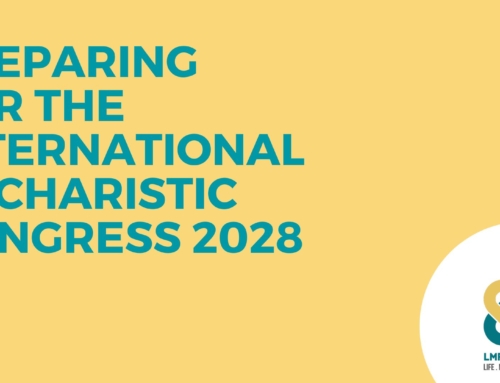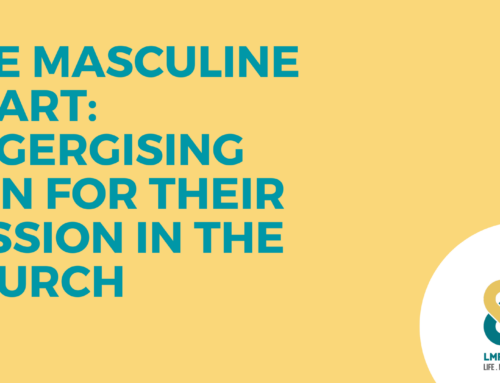Mary Eberstadt discusses how the decline of Christianity in the past century is not only overstated, its reversal lies in the family.
Read the full article: here
…If the conventional accounts have been wrong about what drives some people away from church — money, education, personal enlightenment — why are the churches of Europe as empty as they are? Why do increasing numbers of young people in the West identify themselves as “none of the above”? What is the real causal force turning a civilisation that once widely feared God into a civilisation that in some places now widely jeers at him?
The answer, I believe, has to do with a variable so seemingly humble as to have been overlooked by the titans of sociology no less than by their many descendants. That variable is the human family — more specifically, the relationship between the health of the family and the health of Christianity.
Consider once again the remarkable vibrancy of Christian practice across the West in the years following the Second World War — the religious boomlet much remarked upon by sociologists of the time, and still within living memory of some today. That boomlet was pan-Western in scope. It applied to the vanquished as well as the victorious, the neutral as well as everyone else, the economically devastated as well as the prosperous. So what explains it?
To study the timeline is to see that the years of postwar religiosity coincided precisely with another much-studied phenomenon of those years: the baby boom. Across the Western world, the war was followed by an increase in marriage and babies. Is it not just common sense to think that the baby boom and the religious boom went hand in hand — indeed, that each trend powered and reinforced the other in a way highly suggestive of this overlooked aspect of what makes Christianity tick?
In brief, the idea is that something about families (and in all likelihood, more than one “something”) increases the likelihood that people will go to church, for all sorts of reasons: because they will seek out a like-minded moral community in which to situate their children; because
…the experience of birth, of simply being mothers and fathers, transports some into a religious frame of mind; because the idea of loving someone enough to die for him arguably comes more easily to the parents of the world than to mortals who do not know that primal bond.
In these ways as in others, one can argue, communal life within the family might incline people toward religion generally, and specifically toward Christianity — a religion that begins, after all, with a baby and a Holy Family, and whose revolutionary notion that a valid marriage requires consent of both parties remains one of the most family-friendly human rights innovations of all time.
From the point of view of the new occupant of the Papal Apartments, as well as to his well-wishers in a time of flickering Western faith, there are two ways of looking at this new understanding of secularisation. On the one hand, the family is in parlous shape across the West. More people are being raised in broken homes; more are living alone; many are openly hostile to traditional Christian sexual morality, and legal norms not only in the West but across the world increasingly reflect that fact. All of these and related facts about the shattered hearth put up new barriers to religious belief. (To offer just one potent example, how does one explain the idea of God as infinitely loving father to someone whose own father has abandoned the home, and whose experience of other paternal figures is a series of Mom’s abusive boyfriends?)
On the other hand, this new way of dissecting secularisation brings the heartening news that most secular thinking on the subject has got rather a big thing wrong: there is nothing inexorable about Christian decline after all. Family, like faith, fluctuates throughout the historical timeline. And surely the pragmatic, interlocked relationship between the two gives prospective New Evangelists something meatier to go on, perhaps, than they have had before.
Specifically, because the churches need vibrant families — including families that reproduce themselves, as secular people tend not to do — they must also understand that strengthening the natural family is the first order of business in bringing people back to God.
As has been amply documented by the British political scientist Eric Kaufmann in Shall the Religious Inherit the Earth? and the American author Jonathan Last in What to Expect When No One’s Expecting, believers have many more children than do non-believers. In an increasingly secular and childless age, the churches need to make that job easier.
This is not an abstract call to rhetorical arms, but rather one to grassroots efforts, one parish at a time, dedicated to all manner of things that might make family life easier or more attractive to secular people. More babysitting, support groups, marriage counselling, meal drop-offs, healthcare volunteering, car pools, prayer groups that double as social hours, free tutoring, and other seemingly humdrum but systematic efforts might do more to re-evangelise Western culture than all the pontifical councils in Rome.
Put differently, the welfare state has been an ineffective and hideously expensive substitute for the fractured Western family. If the churches are to succeed, they must compete successfully against it.
This brings us to the fact that there are other forces at work that might also contribute inadvertently to religious revival. Will the almost certain collapse of some of the West’s now untenable welfare states launch a massive return to the hearth? Will people tired of shrinking pensions and record unemployment rates and other factors that show the welfare state to be an inefficient substitute for the family make different familial decisions from those of their parents? In America during the years immediately following the 2008 crash, to offer small but intriguing suggestive evidence, divorce declined slightly, and young people moved back home rather than into the atomised life so characteristic of the generations of young adults before them. Could wider economic catastrophe itself spark a revival of the family — and with it, a revival of the Christianity that has for so long protected and nurtured the family even as it benefited from it? Those are the questions looming not only over St Peter’s Square, but the entire Western world.
Read the full article: here





